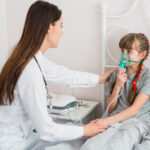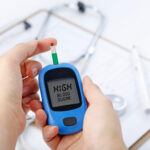
A recent study highlights a concerning trend: younger adults are being diagnosed with cancer more frequently, especially gastrointestinal cancers such as colorectal, pancreatic, and bile duct cancers. Published in JAMA Network Open, the study compares cancer incidence rates in people under 50 between 2010 and 2019, revealing a 0.74% increase in early-onset cancer diagnoses.
Rise in Gastrointestinal Cancers
The most significant surge was observed in gastrointestinal cancers, which saw a 14.8% increase in new cases over the decade, rising from 6,431 cases in 2010 to 7,383 cases in 2019. This type of cancer also had the fastest annual increase rate at 2.16%.
Jake Stein, MD, MPH, from the University of North Carolina School of Medicine, emphasized that the medical community has been aware of the rising incidence of gastrointestinal cancers in younger populations. This new data confirms these trends, providing clear evidence of the increase.
Broader Increases in Early-Onset Cancers
The study also found that early-onset cancers of the breast, urinary system, and reproductive system are on the rise. Utilizing data from the National Cancer Institute’s SEER program, researchers examined cancer cases in people under 50, accounting for gender, race, age group, and cancer type. They found 562,145 early-onset cancer diagnoses from 2010 to 2019, with the majority in women aged 40 to 49.
In 2010, there were 56,051 new early-onset cancer cases, which slightly increased to 56,468 by 2019. Gastrointestinal cancers had the highest increase, followed by urinary and female reproductive system cancers.
Common Early-Onset Cancers
Colon, rectal, stomach, and pancreatic cancers were the most common gastrointestinal cancers. Notably, cancers of the appendix, intrahepatic bile duct, and pancreas had the fastest-growing incidence rates. Breast cancer had the highest number of new early-onset cases in 2019.
Understanding the Increase
Kala Visvanathan, MD, MHS, from Johns Hopkins Bloomberg School of Public Health, noted that while the study provides a broad overview, it lacks data on mortality rates and individual risk factors such as family history, diet, and lifestyle. This makes it difficult to pinpoint the exact reasons for the increase. However, lifestyle and behavioral factors, including obesity, diabetes, and lack of exercise, are likely contributors. Diet, particularly high consumption of alcohol, processed foods, and red meat, may also play a role.
Demographic Variations
The increase in early-onset cancer cases varied by demographics. Women saw a 4.35% rise, while men experienced a 4.91% decrease. Asian or Pacific Islander and Hispanic populations saw double-digit increases (32.3% and 27.6%, respectively), while rates decreased for White and Black Americans. The 30-39 age group had the greatest increase, while rates for those aged 40-49 remained stable and declined for those over 50.
Visvanathan emphasized that even groups with declining rates should remain vigilant, as cancer rates for older populations are still significantly higher.
Screening and Prevention
Healthcare professionals and policymakers need to understand these trends to improve cancer screening and prevention strategies. The U.S. Preventive Services Task Force (USPSTF) lowered the recommended age for colorectal cancer screening from 50 to 45 in 2021, reflecting the rise in cases among younger people. Other screening guidelines may also be adjusted in the future.
Matthew Kulke, MD, from Boston Medical Center, stressed the importance of making sure underrepresented groups are aware of and have access to cancer screening. Raising awareness about early-onset cancer is crucial, as cancer is not solely an older person’s disease.
Impact of COVID-19
The study’s data ended in 2019, so the impact of COVID-19 on cancer rates is still unknown. However, the pandemic likely exacerbated risk factors such as obesity, sedentary lifestyles, and alcohol use, while also delaying preventive care. This could lead to further increases in cancer rates and more late-stage diagnoses.
Steps for Prevention
Individuals can reduce their cancer risk by maintaining a healthy weight, avoiding smoking, and protecting their skin from the sun. While these strategies are not foolproof, they are crucial for early detection and prevention.
Takeaway
This study serves as a reminder that cancer can affect people of all ages. Young adults should adopt healthy habits and stay informed about their cancer risk. Regular screenings and consultations with healthcare providers are essential for early detection and effective prevention.
Dr. Stein aptly summarizes, “There’s often a sense among young people that ‘I’ll worry about that when I’m older.’ This study reminds us that we should be taking care of our bodies here and now. Eating healthier, drinking less alcohol, losing weight, staying active—these are habits that can keep us healthy even in our 30s.”
References
- JAMA Network Open study
- SEER data from the National Cancer Institute
- USPSTF colorectal cancer screening guidelines
- USPSTF mammogram guidelines
- Health expert interviews and analysis











